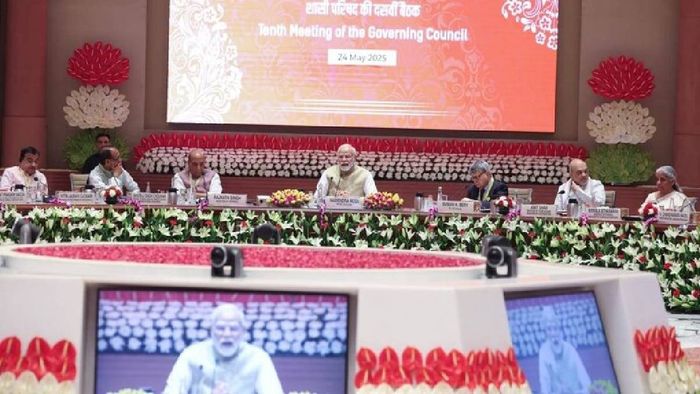PM Modi pushes for ‘One State, One Global Destination’ to drive tourism, urban growth
In a strategic push to accelerate India’s transformation into a developed nation by 2047, Prime Minister Narendra Modi on Saturday urged states to focus on building “future-ready” cities and developing at least one global-standard tourist destination within each state.

- May 24, 2025,
- Updated May 24, 2025, 3:09 PM IST
In a strategic push to accelerate India’s transformation into a developed nation by 2047, Prime Minister Narendra Modi on Saturday urged states to focus on building “future-ready” cities and developing at least one global-standard tourist destination within each state.
Chairing a key meeting of the NITI Aayog with state chief ministers and Union ministers, PM Modi proposed the concept of “One State, One Global Destination” to bolster tourism, boost local economies, and create sustainable urban hubs. “States should develop at least one tourist destination at par with global standards by ensuring comprehensive infrastructure and facilities. This would also catalyse the development of neighbouring cities,” the Prime Minister said.
The meeting marks PM Modi’s first interaction with state leaders following the sensitive Operation Sindoor and recent hostilities with Pakistan. His emphasis on development and unity comes amid concerns about national security and the aftermath of a devastating terrorist attack in Pahalgam, Kashmir, that killed 26 tourists and caused a significant tourist exodus from the region.
Despite the prevailing tensions, Modi’s call for a tourism-centric development model underscores the government’s determination to remain focused on long-term growth and resilience.
Highlighting the importance of Centre-state collaboration, PM Modi appealed to all state governments to function cohesively with the central administration under the spirit of “Team India”. “We must accelerate development. If the Centre and all states work together like Team India, no goal is unachievable,” he said.
Modi stressed that the roadmap to a Viksit Bharat—a fully developed India by 2047—must rest on the three pillars of growth, innovation, and sustainability. He said India’s rapid urbanisation requires proactive planning and bold reforms to create future-ready cities that can serve as engines of national progress.
The Prime Minister also laid out a vision for inclusive growth, emphasising that every component of the country—from states to cities, municipalities, and even villages—must be aligned with the developmental mission.
In a significant policy cue, Modi also highlighted the need for enhancing women’s participation in the workforce. “We must enact laws and frame policies that ensure respectful and equitable integration of women in our labour force,” he said, noting that gender inclusivity is essential for sustainable national growth.
While several key chief ministers, particularly from southern states like Karnataka, Kerala, and Puducherry, were absent, the meeting saw the participation of Andhra Pradesh’s N. Chandrababu Naidu, Tamil Nadu’s M.K. Stalin, and Telangana’s Revanth Reddy—signalling broad political alignment on core developmental goals.